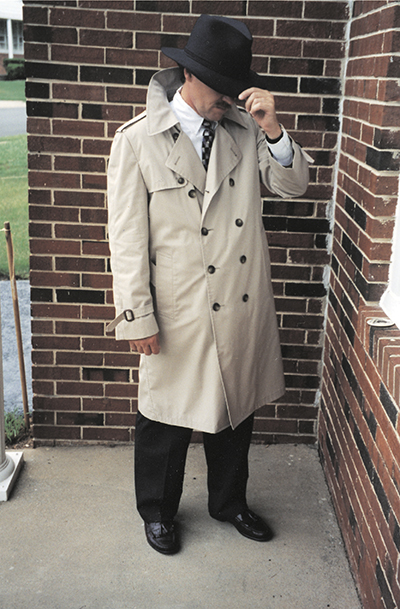Do We Really Need the FCC?
The professional video industry's #1 source for news, trends and product and tech information. Sign up below.
You are now subscribed
Your newsletter sign-up was successful
You might not have noticed, but… there ain’t much of any TV-related doin’s at the FCC these days. So why are we keepin’ them around?

Man, if I had a nickel for every time I’ve sworn a foul oath and wished for the demise of “the Commish,” I’d be up to my navel in nickels. Seems that there has always been a string of bad news headed our way out of Washington, whether on the rule-making front, enforcement or just general annoyance. But as old Uncle Umberto used to say, “Be careful what you wish for.”
Guess I must have wished for the FCC to take a series of crazy wrong turns and drive off into the swamp, because I don’t even think I can see their taillights any more. Not relevant, I say.
OUT OF CHAOS
You know the story of how it sprung up, lo, those many decades ago. In 1934, the world was under bombardment by a steady stream of new, whiz-bang technologies (sound familiar?). Telegraphy had given way to telephony and long distance, and rotary dialing booted Mabel the operator off the switchboard. Radio grew from curiosity to killer, and there were rumors of pictures sent through the ether.
President Franklin Roosevelt waived his magic fairy wand… at least that’s how I heard it… and the Communications Act of 1934 brought the FCC into being. No good to have a narrowly focused Federal Radio Commission; we needed a single, super-duper-mega-agency to control all our most far-out technologies at once! (Another familiar theme.)
Let’s put a rosy spin on things: The FCC was, arguably, the midwife who stood by for the births of all our modern broadcast entertainment technologies. Good job, FCC. And thanks. But ol’ Mario hasn’t noticed anything substantial going on since, well… since about the time “The Beverly Hillbillies” won their time slot.
The evolution of our beloved medium has had less to do with directives handed down from on high, and more with the organic nature of emerging technologies and market forces. I ain’t advocating anarchy, of course, but we don’t need the high-profile decisionmaking drama of a governmental commission; a plain ole’ department would do just fine, thanks.
The professional video industry's #1 source for news, trends and product and tech information. Sign up below.
BYE, BYE, BABY
Now, we didn’t just wake up one fine day and notice that the Commish had become irrelevant overnight. It was more like that famous frog in the pot of boiling water, its environment changing slowly over time, until: stick a fork in it, baby, ’cause it’s done. Kaput.
So, seriously, what has the FCC done for you lately?
Enforcement—your public file and your transmitter logs? That’s a functional task, not a commission-worthy, decisionmaking initiative.
Warring cellphone carriers buying, selling and trading tiny slivers of bandwidth? Please. Market forces at work… dog-eat- dog, survival of the fittest. No commission required.
And spectrum auctions… mama mia! Don’t get me started! Short of filling the general treasury with purloined booty, what has that accomplished? And if we pretend, just for a minute, that such a commission was broadcaster-friendly [peals of laughter heard offstage], all the spectrum-derived cash in Foggy Bottom wouldn’t prevent market forces— the viewing public— from choosing where to watch their TV… over the air, on a piece of RG-59 or on the Internet. The commission can’t save us, and they wouldn’t if they could.
Not convinced the FCC is passé? Then here’s the ultimate test: How many commissioners can you count? Uno, dos, tres… hey, wait—that can’t be right! And an acting chairperson? Exactly how unimportant do you have to be around Washington to muddle onward without a permanent leader, and with a 60-percent head count? In business, they do it this way: If the management team quits, but the organization still keeps on keepin’ on like nothing happened, guess what? We’re not hiring a new management team… you guys are doin’ great on your own. What’s the opposite of indispensible?
There are things we’d all miss… the government- issue hovel where you took your license test; those late-night visits from the Field Engineering team, checking your ERP; and the reams and reams of forms required to… well, to do just about anything.
But nostalgia don’t feed the kitty-cat, and if we’re serious about remaining relevant to new audiences and new generations of viewers, we need to break the shackles that bind us. And that’s you, old friend.
Mario Orazio is the pseudonym of a well-known television engineer who wishes to remain anonymous. E-mail him atmorazio@nbmedia.com.
